What is coronavirus and do we need to panic?
You are probably wondering exactly what is coronavirus and do we really need to worry. Is the media just scaremongering and causing panic? Is everyone overreacting? How is this situation affecting deaf people?
- The total number of global cases has surpassed 120,000
- There are more than 4,300 deaths. The mortality rate is over six percent, which is six times higher than normal influenza.
- Over 100 countries have reported cases
- Italy and Denmark are under lockdown as the number of cases jump
- The UK and USA are on the same trajectory as Italy
The World Health Organization (WHO) has officially declared the coronavirus a pandemic.
A pandemic is the worldwide spread of a new disease. An influenza pandemic occurs when a new influenza virus emerges and spreads around the world, and most people do not have immunity.
— World Health Organization
What is coronavirus doing to our lifestyles?
Everyone is worried about the risk of catching the virus and we have seen large events and conferences cancelled around the world. Football matches are being played in Italy without any audience in the stadium, but the games are still going ahead. Every football game in England will now be held behind closed doors with no games to be shown in pubs and matches will be streamed live to ticket holders. Ireland has shut down all education facilities and events until 29 March.
In England the Cheltenham racing festival has been allowed to go ahead with 250,000 people in close proximity, which is frankly reckless. Parliament is still in session even though an MP has tested positive for coronavirus. Our government has yet to take any drastic action.
Google in Dublin and Sony, Nike, Twitter and Facebook in London have closed their offices and sent their employees to work from home. At 121 Captions, we are very fortunate we all work from home anyway so we already have systems in place for remote working.
We have staff in the northern Italy red zone who say it feels very surreal there. They are all on lockdown with the virus, unable to leave houses unless it’s urgent. The law is 1 metre distance between people at all times so even in a queue, you have to keep a metre distance from others. They have stuck big yellow lines down the aisles (see photos above) and employed someone to ensure this rule is adhered to. In the shops, only one person can go in at a time. Staff are wearing masks and disinfecting touch screens on self checkouts. Only one person per family is allowed to leave the house to go to the shop. Lots of shoppers are wearing masks and disposable gloves. Bars and cafes are open from 6am – 6pm but only if a 1 metre distance can be adhered to. The Italians love being social so this is a tough one for them. The Italian health care system is excellent yet they are struggling to cope with this virus. Those with a fever must call their doctor and not go to the hospital, the elderly and sick must stay at home.
Connor Reed is an English teacher living in Wuhan. He was the first known British person to get coronavirus and he’s revealed what it was like. A doctor local to us is one of the UK cases and he feels quite well. So the effects can be variable.
In the UK, Language Service Professionals (captioners, electronic notetakers, sign language interpreters, lipspeakers) are hugely concerned about how this virus will affect their working conditions. What if assignments are cancelled, what if a professional needs to self-isolate, do they have an income protection policy and do the terms cover coronavirus – these issues are all concerns for the professionals. If a communication professional is reluctant to travel or to cover a medical assignment, what will happen to the deaf client?
Managing exposure to coronavirus
What is coronavirus high infectiousness doing to our health? Keeping safe is a huge concern. The data is weak to prove that touching your face transmits COVID-19. The US infectious disease expert Michael Osterholm explains very well how coronavirus is more of a challenge than annual influenza – a mask and gloves probably will NOT stop you catching it. There is no point preventing air travel and closing schools. Stay off cruise ships, have a plan for when your first co-worker is infected, and minimise your social activities.
Hand washing may play some role in this, but not nearly as much as people think. It’s all about the air and the air you’re breathing.
– Michael Osterholm
When greeting people, handshakes are out. It’s a good idea to keep your distance. Hearing people can shout if needed, however this won’t work for deaf people – most of whom will read lips or listen, and can’t understand shouting. Standing at a distance makes visual communication more difficult. Communication can be managed more effectively with the addition of basic sign language, even the old pen and paper or WhatsApp. Talk to your Language Service Professional if you’re concerned about support at your meeting or event.
Go remote!
Lectures, events and meetings are being cancelled everywhere. If you have moved to online operations, be sure to make your events accessible and compliant by adding live captions. We specialise in providing live captions or live transcription remotely through online platforms such as Zoom, Adobe, WebEx etc. for events and teleconference calls, no matter where in the world you are.
There is no software to download. All we need is your audio output, and we’ll stream the live captions to you, and you’ll get a transcript at the end. If event organisers don’t want crowds to attend, we can embed captions into live streams so everyone can follow along from home.
To find out more, contact us or email us on bookings@121captions.com
Manage your health
We must act fast and we must act now.
- Prepare and be ready
Preparation means taking responsibility for yourself and those around you. It makes sense to take the best care of yourself so that you are in the best health possible, should you catch this virus.
Our friendly expert nutritionist Alex Sacco (Fitness Mama) says:
Stop. Think. Listen. As the current stats stand this virus is 4% more fatal than the common flu. But it’s a hell of a lot more contagious. Healthy individuals need not worry, but we do need to protect the vulnerable amongst us, namely the old and those with lung conditions.
To protect the vulnerable – be clean. No brainer. Wash your freaking hands. If you’re like me and don’t use chemicals on your body or in your house, there are plenty of naturally derived antiviral agents.
To protect yourself – boost your immune system. Make sure you’re taking Vitamin D. In October I start taking it daily and giving it to my little one. It underpins the immune system and has been shown in studies to be outstanding in helping lung issues. All my clients are advised to take it during the winter months. Studies show that you need to expose at least 40% of your skin to the sun for at least 20 minutes a day to produce adequate Vitamin D.
Fitness Mama’s Green Juice
- 100g spinach
- 100g kale
- Half a cucumber
- 2 stalks of celery
- Big lump of ginger – antiviral
- 1 clove garlic – antiviral
- Half organic unwaxed lemon with peel – Vitamin C
- A chunk of fresh turmeric – antioxidant
A green juice hits the bloodstream within 20 minutes, flooding it with micronutrients, raw enzymes and lots of lovely things to boost your immune system, lower inflammation and fight disease. Smoothies are meal replacements and retain fibre, juices are different and are solely medicinal. Use a slow masticating juicer to retain the live enzymes. *
Don’t panic. Fear causes a rise in cortisol. This affects brain function and in turn your immunity. So please keep calm and seek wisdom over chaos, faith over fear.
Fitness Mama is on Instagram and Facebook
*Do not use a centrifugal juicer or a blender. Amazon deliveries are still happening (even in Italy!) so you can grab a slow masticating juicer online.
- Detect, protect and treat
This is the first pandemic caused by a coronavirus. BUT this is the first pandemic that can be controlled. We’re all in this together. Let’s do the right things to protect everyone. It’s do-able.
What is coronavirus capable of? Over 60,000 patients have recovered (more than 73%) however it’s important to note the point of recovery takes much longer to track than the point of diagnosis, so the recovery rate could be much higher than 73%. 80% of people infected with coronavirus will recover. The more vulnerable are the elderly, males, and those with other health issues such as cardiovascular and respiratory diseases, diabetes and hypertension.
It’s a hard time for deaf people. In the UK you have to go to a tent outside the hospital and telephone 111 from there. A nurse will come to test you. How is a deaf person supposed to hear on the phone to make the call? Is the phone protected or wiped down after each use?
If you catch the coronavirus and go into medical care, you will be surrounded by nursing staff wearing masks. Since most deaf people rely on facial cues and lipreading, masks will make communication impossible. Clear masks can be purchased and these would go a long way to facilitate better communication.
It’s doubtful many interpreters will want to attend to give communication support, so this needs to be considered if communication support is needed. You can contact your UK hospital’s PALS department and ask for remote captioning support. Or you could bring your mobile phone and hope that works within the hospital building. Pen and paper is always a good standby, preferably with each person having their own set.
Then you are effectively in solitary confinement. How will you communicate with nursing staff? What is coronavirus management procedure in hospitals, how will they communicate details to a person who can’t hear? Will they have a write on/wipe off board and disinfect this after each use? You could make it easier for them and bring one with you. You are the best judge of your communication needs – think about your own circumstances and be prepared with a packed bag in case you need to attend a hospital quickly. As usual, the invisible disability of hearing loss has slipped under the medics radar. Take responsibility for your own communication needs and help them to help you.
- Reduce transmission
Patients infected with coronavirus are the most contagious before they get severe symptoms, and they can still spread the virus when they feel better. We all need to act today or many more people will get ill. Prevention is better than cure, as they say. Heed your national health advice – wash your hands properly with soap and water, and self isolate if you develop a fever and dry throat. This experiment shows hand sanitisers are not an alternative to washing with soap and water.
81 countries have not reported any COVID19 cases, and 57 countries have reported 10 cases or less. We cannot say this loudly enough, or clearly enough, or often enough: All countries can still change the course of this pandemic.
– World Health Organisation
- Innovate and learn
Scientists predict the coronavirus will peak next winter. Do think about others, not just yourself. Focus on social distancing and keep away from those who are infected. Wash your hands frequently for 20 seconds. Use a tissue for coughs and sneezes. Avoid touching your face. Clean surfaces where possible. Postpone that holiday. Keep an eye on news from the World Health Organisation and keep things in perspective. Research is progressing – Taiwan has successfully produced an antiviral drug Remdesivir that can fight coronavirus. Above all, be sure to look after your own safety, health and immunity.



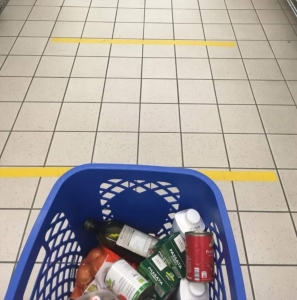
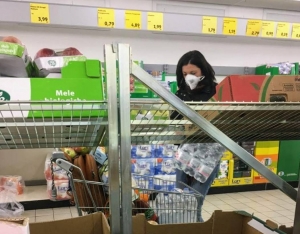
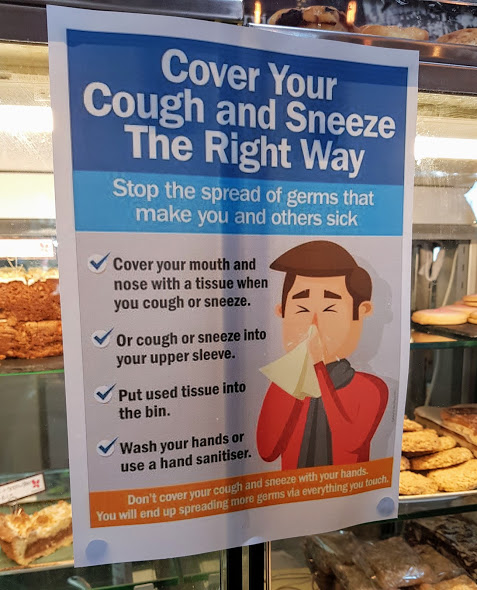

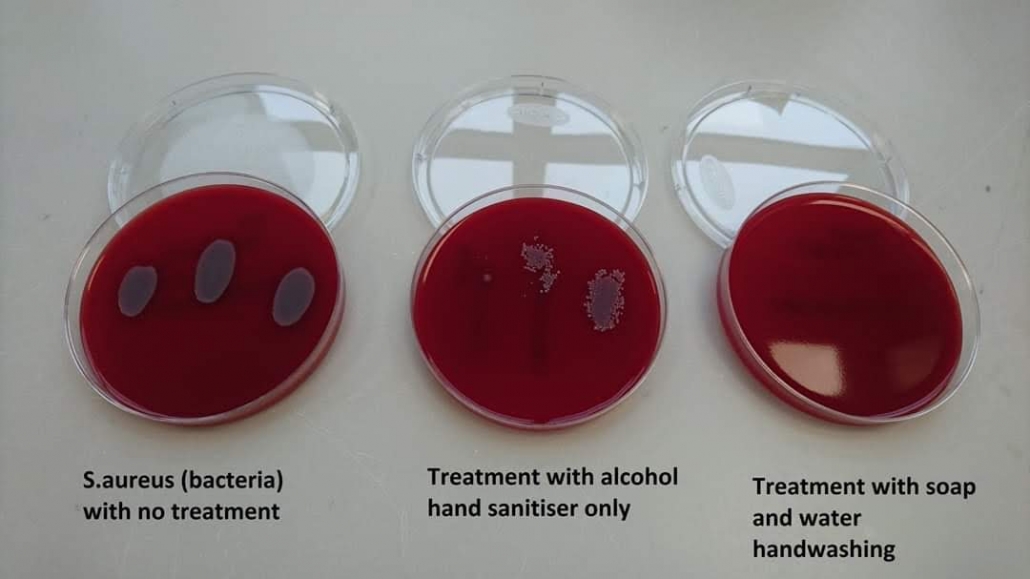
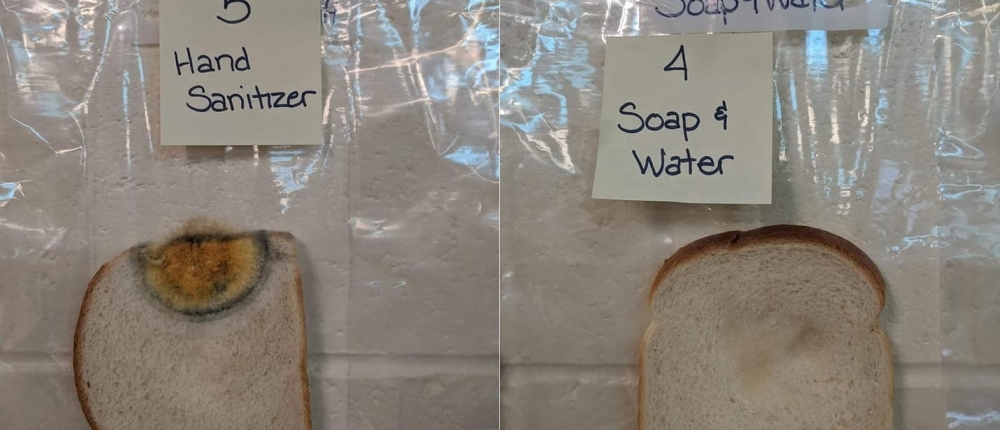

Leave a Reply
Want to join the discussion?Feel free to contribute!